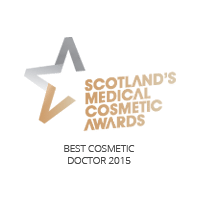Sunshine - friend or foe?
With the heatwave upon us – how can we protect our skin from the sun if we have problem skin?
Let's talk about sunshine with Dr Sam Robson, GP and skin specialist.
So. Can the sun help improve the appearance of acne? Yes. It can dry out your skin and this can temporarily reduce the oiliness associated with acne. But the sun also increases the risk of long lasting hyperpigmentation (because your skin is inflamed) – this means that even if your spots appear to have dried out, your overall complexion and any scarring could be worsened because the resulting sun damage leaves an uneven and blotchy appearance.
Protecting your fragile skin has to be a priority and we encourage you to take a long term approach.
So – back to basics - Acne starts with a blocked pore. It's often exacerbated by the accumulation of sebum, sweat and dead skin cells clogging your pores. And so, the best sunscreens for acne-prone skin should use ingredients that don't clog pores, don't irritate the skin and don't leave a white cast.
A few pointers:
1. The first thing to keep in mind while purchasing sunscreen is whether the product is non-comedogenic (which means it doesn't block your pores) and is preferably oil-free.
2. The second consideration is that acne-prone skin, being damaged and fragile, can be more susceptible to irritation or redness. So, the sunscreen shouldn't exacerbate this. I'd certainly advocate trying sunscreen samples, applying these and seeing how they feel on your skin.
3. Along with the ingredients, you must also check the SPF level.
An SPF of 30 or higher works best in terms of sun protection for all skin types.
4. That said, make sure that your sunscreen is lightweight and hydrating. You will not want to use it if it feels heavy and “claggy” on your skin or leaves a white cast.
5. The sunscreen must be broad spectrum – which means it counters UVA (usually measured in stars) and UVB (the typical factor 30- 50). This is important because UVA penetrates your skin more deeply and is most responsible for the sun damage that can lead to skin cancer. UVA is present everyday (even on cloudy days and indoors), so we advocate wearing SPF every single day and make it part of your morning skincare routine to apply this last.
6. When you're shopping for new skincare products, be sure to ask your salesperson if they have samples that can help you determine just how well they work on your skin. Your salesperson should also take the time to listen to your concerns and help you find a product that's right for your needs.
Now go enjoy the heatwave, safely!










